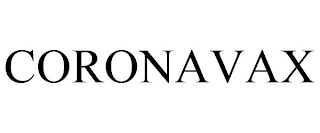A company named And Still, LLC filed trademark applications to register COVID-19 VAX and CORONAVAX for vaccines.
The Boston Business Journal reported that the trademark applicant planned to sell the the trademarks to a company that makes a coronavirus vaccine.
If this is true, it is very unlikely to work.
There is No Market For Speculating in Unused Trademarks
First, there is no market for unused trademarks. As I’ve written before, it is a common misconception that filing a trademark application grants rights in a trademark without actually using the trademark.
Trademark rights are acquired by using the trademark in conjunction with the sale/providing of goods or services. An intent-to-use trademark application can be filed before a trademark is used with products or services, but only if there is a demonstrated bona fide intent—at the time the application is filed—to use the trademark with the goods/services described in the application. M.Z. Berger & Co., Inc. v. Swatch AG, No. 2014-1219 (Fed. Cir. June 4, 2015).
Here, if And Still, LLC didn’t have an intent sell vaccines itself (or in some cases through an affiliated/controlled company) under the marks at the time the trademark applications were filed, the trademark applications are likely subject attack on this basis. Intent to sell the marks, without use, won’t work.
Descriptive Marks Require Acquired Distinctiveness
Second, a mark that is merely descriptive of the goods/services and has not acquired distinctness in the marketplace will be refused registration the primary register.
In 2019, the TTAB affirmed the refusal to register ZIKAVAX and ZICAVAC for vaccine formulations because each mark was descriptive.
Bharat Biotech International Limited applied to register these marks in 2017 following the epidemic caused by the Zika virus.
The TTAB found that misspelling of zika as ZICA did nothing to make ZICA non-descriptive. It also found that evidence showed that the VAX and VAC were common abbreviations for vaccine.
The TTAB concluded that “the proposed marks immediately describe the goods as Zika vaccines, because [t]he question is not whether someone presented with only the mark could guess what the goods or services are. Rather, the question is whether someone who knows what the goods or services are will understand the mark to convey information about them.”
Here, the COVID-19 VAX and CORONAVAX is likely to meet the same fate at the ZIKAVAX trademark application, a refusal as descriptive.
Descriptiveness refusals can be overcome by showing the mark at issue has become associated with a single source in the market place. This market recognition is known as acquired distinctiveness or secondary meaning. But that is unlikely here at this stage because the applications are intent-to-use applications. Intent-to-use applications tend to indicate that applicant has not yet used the mark. And without use, there is unlikely to be a marketplace association.
There’s also the option to place a descriptive mark on the supplemental register. But that’s if the marks are not generic. Also, a registration on the supplemental register does not provide a presumption that the registrant owns the mark.
Further, even if the marks where registered on the supplemental register, the marks would still need acquired distinctness for enforcement, which appears unlikely at this time.
Cite: In re Bharat Biotech International Limited, Serial Nos. 87570858 and 87570862 (TTAB 2019) (Refusing ZIKAVAX and ZICAVAC as descriptive of vaccine formulations).
